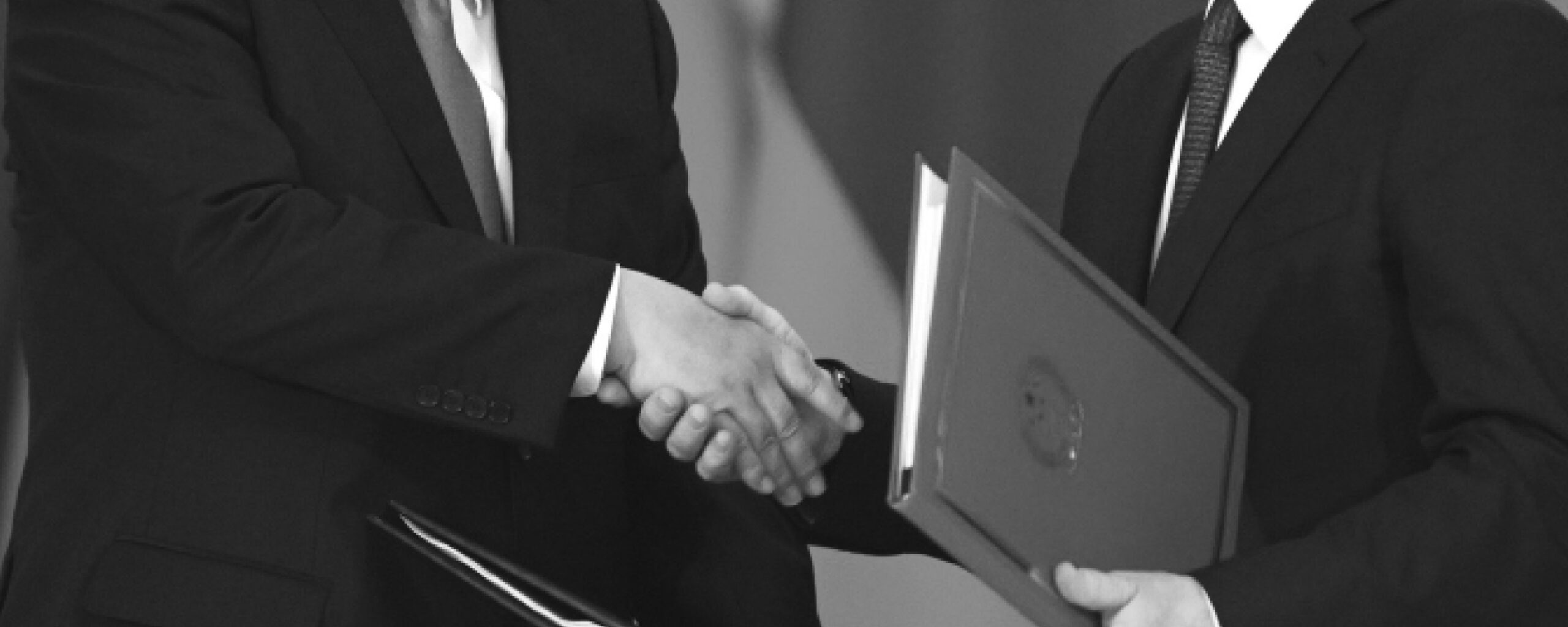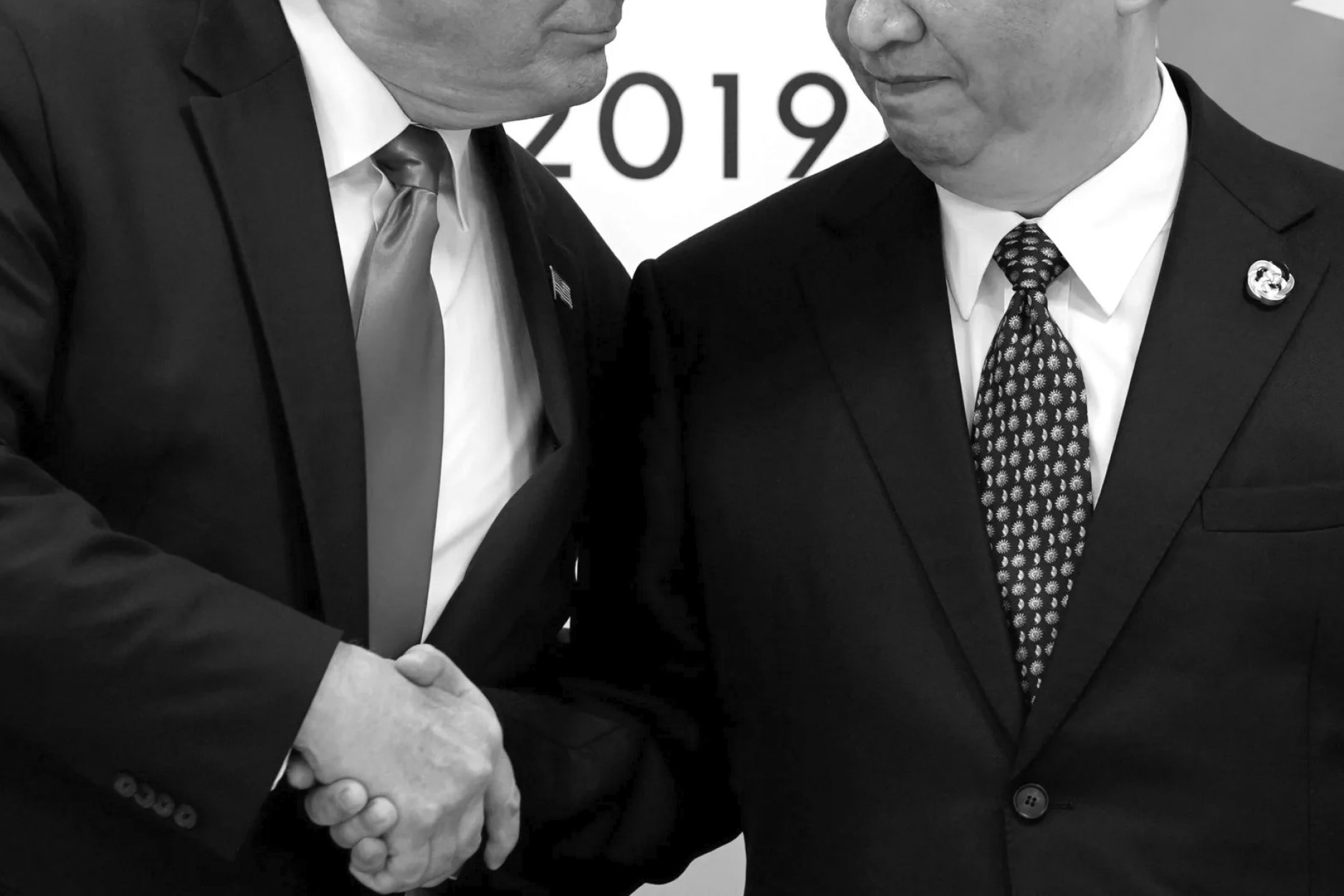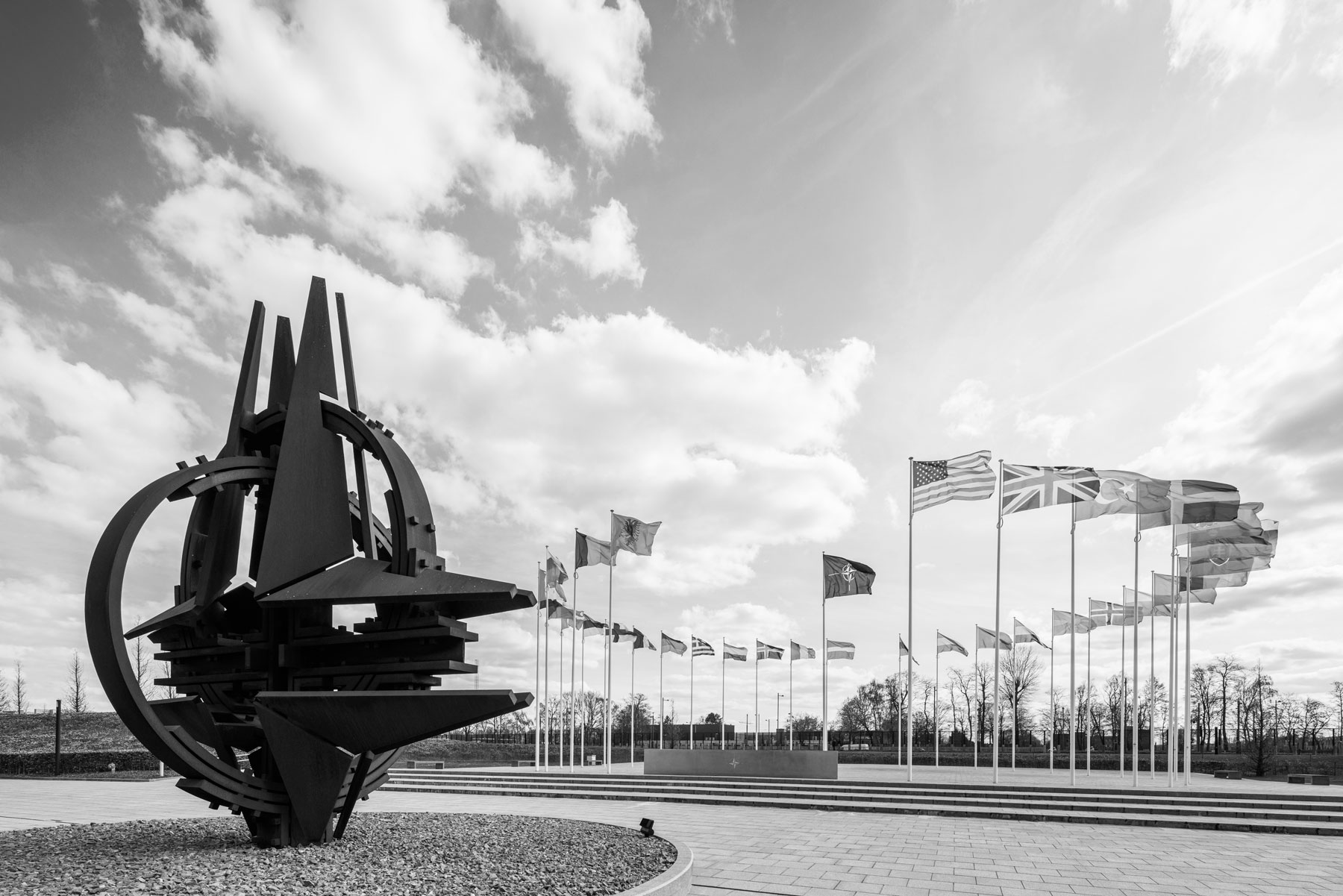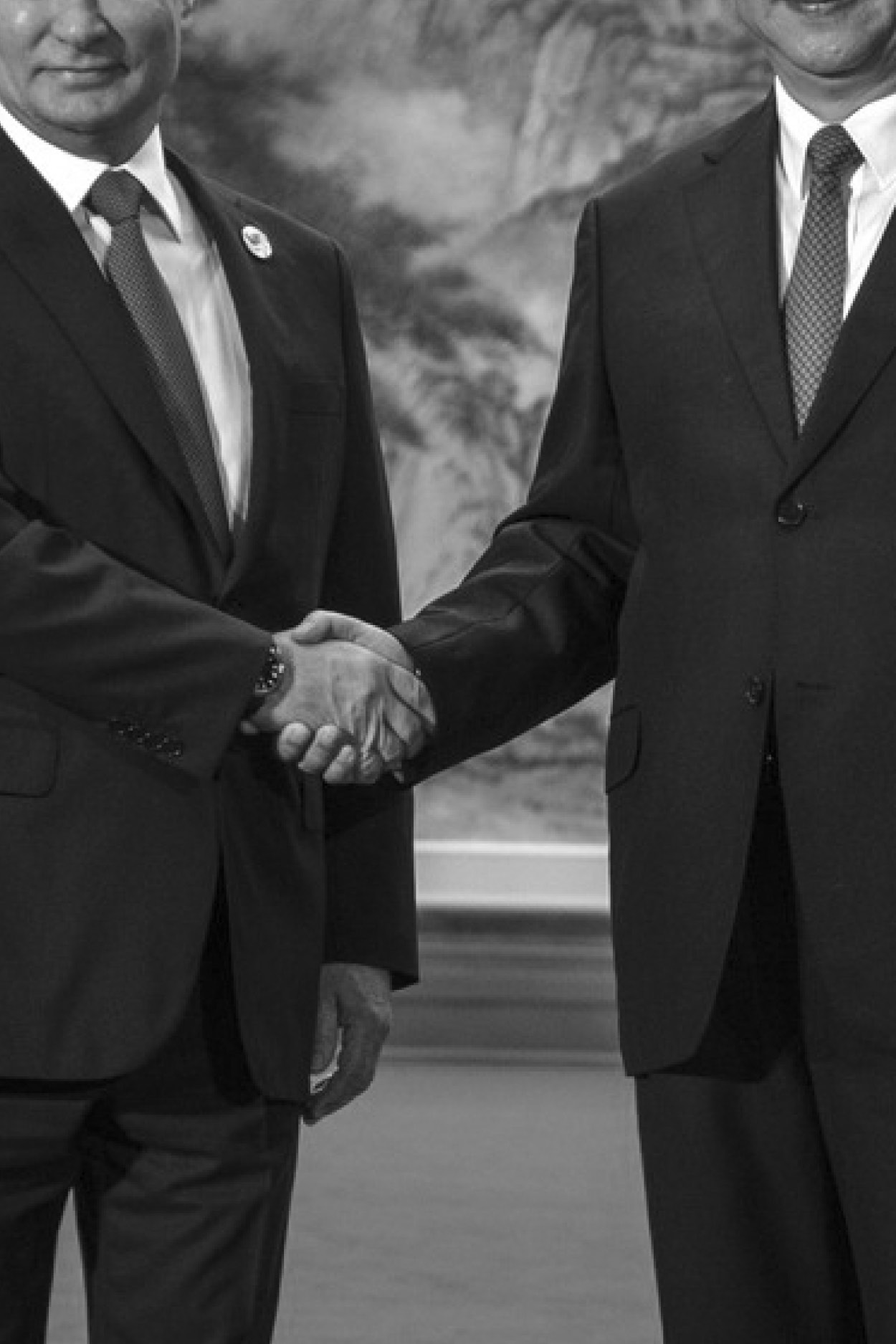
Janusz
Reiter
Quo vadis,
Europe?
Issue #02 — Transforming Environments
Everyone agrees that Russia’s war against Ukraine is about more than the invaded country itself, but that does not mean that everyone is acting out of the same motives. The Ukrainians have a legitimate, self-evident interest in not being left alone in their struggle for survival. Only if they succeed in presenting Ukraine as the scene of a conflict of global significance can they mobilize allies to stand by their side. Otherwise, they will remain alone with the overwhelming aggressor Russia, a tragic but local conflict, as seen so many times before.
For if it is true that this war is also creating a new world order, then we must soberly recognize that the ideas of a new world order are extremely contradictory.
This strategy, as understandable and inevitable as it is, has a dark side. What motivates some to support Ukraine may be reason enough for others to side with Russia or to stand on the sidelines and wait. For if it is true that this war is also creating a new world order, then we must soberly recognize that the ideas of a new world order are extremely contradictory. The Western liberal democracies are, arguably, defenders of the status quo – plagued by self-doubts. This is also true of their leading power, the United States. For old-school transatlanticists like Joe Biden, Ukraine’s commitment to liberal democratic values is welcome proof that the idea of the West is alive and kicking. We may find out next year whether Donald J. Trump shares the outgoing president’s understanding of America’s international obligations. Or we will see an US president who does not believe in the Atlantic community of values and is not convinced that there even is an Atlantic community of interests. In the 20th century, America made two completely contradictory decisions about its role in the world. After World War I, it withdrew from Europe and from world politics. After World War II, it stayed on the shattered continent and became a European power. What’s more, America largely created the new world order for which it had to take responsibility. Whether it was security or trade, the US provided the so-called public goods. Its power was limited by its rivalry with the Eastern superpower, the Soviet Union. America could not retreat from the bipolar world. Nor could it do so when, after the collapse of the Soviet Union, it found itself in a world described as “unipolar”. But this did not last long.

Nevertheless, several countries, including Poland, were able to use the “window of opportunity” to find a secure place in the Western communities of the EU and NATO. Washington initially had many doubts about their desire to join but decided to open up the Atlantic alliance. Germany, also skeptical at first, supported the candidate countries, especially Poland, for moral and, above all, strategic reasons. A “gray zone” between the Federal Republic and Russia would sooner or later have become a playground for power rivalries, the end of the Europe in which Germany could build its security and prosperity. For Poland, this would have meant a return to the disastrous geopolitical limbo from which it had sought to escape.
When NATO members met for a summit in Bucharest in 2008, the “window of opportunity” was no longer wide open. In the face of opposition from Germany and France, the United States was unable to push through an invitation to Ukraine to join. In principle, it should be allowed to join, but de facto those who feared that the West would lose Russia if Ukraine were invited to join prevailed. 6 years later, the membership option was still open in principle, but the Ukrainian Crimea was already occupied by Russian troops. And it took another six years for Russia to launch a massive attack on Ukraine, which was ready to join NATO. Suddenly, the Atlantic community was in danger of losing not only its enemy, Russia, but also its friend, Ukraine.

The Ukrainian drama cannot be explained by Russia’s strength and America’s weakness alone.
The Ukrainian drama cannot be explained by Russia’s strength and America’s weakness alone. By Western standards, Putin’s empire, an economy the size of Italy, is a colossus with feet of clay. But the world does not work by Western standards. Russia is not creating a new world order, but it can sow chaos very successfully. And America? It is still the No. 1 economic and military power, with global influence. It is the context that has changed. And that context is being shaped by new powers, first and foremost China, which have their own ideas about the world order. They are not (yet?) strong enough to shape the world as they wish. Nor do they have a precisely formulated vision of the world order. They do not want to be bound in their power politics by institutions, especially those invented by America, nor are they bound by norms or even values. This understanding of politics links authoritarian China not only with Russia, but also with fundamentally democratic countries such as India or South Africa. They want the kind of flexibility in foreign policy that was taken for granted in the 19th century, which rings a bad bell for Europeans. Not flexibility, but reliable integration has become the new European understanding of politics. It is no coincidence that the foreign policy orientation of the Federal Republic of Germany is called Westbindung.
Neutrality is not an option, as only a strong, viable country could try to maintain its neutrality.
So, is Ukraine swimming against the tide of world politics with its pro-Western course towards the EU and NATO? Its choice of the West is rational because it is only there where it can survive as a nation and develop in freedom. Neutrality is not an option, as only a strong, viable country could try to maintain its neutrality. But Russia does not want a strong Ukraine. It wants a failed state as a neighbor. But does China, Russia’s most important ally, also want a weak, failing Ukraine? The Ukrainian government is constantly trying to find cracks in the pro-Russian alliance. It sends conciliatory signals to Beijing in the hope that the Communist rulers can be pragmatic as well, as they were earlier.
In 1956, China played a significant role in European politics. It was the year of great unrest in the so-called Eastern Bloc. In Hungary, a national uprising against Communist rule was ruthlessly crushed by the Red Army. In Poland, riots broke out in the city of Poznan and spread. A moderate wing of the Polish Communist Party attempted to take power in order to calm the situation in the country. Moscow watched the situation with suspicion and sent in its military troops. Then came a warning from Beijing. The Chinese Communists let their Russian comrades know that they considered military intervention in Poland inappropriate. The Soviet tanks were stopped.
So why did Beijing intervene? And why did it not intervene in Hungary? The Hungarian uprising was a national uprising against communist dictatorship. China gave the Soviets a free hand because they did not want to overthrow the system in a communist country in Europe. In China’s view, the Polish unrest was a conflict within the system, within the family, so to speak. Hence China saw no reason to use force. However, a key factor in Chinese policy was the concern that military intervention in Poland would establish the Soviet Union as the sole ruler of the communist world. Certainly, China did not want too much Soviet influence in the Communist world.

Unlike during the Cold War, neither Russia nor China is a status quo power.
When Russia invaded Ukraine on February 24, 2022, Moscow could at least be sure of Beijing’s tacit approval. China has an unemotional attitude toward Ukraine as Chinese interests are not directly affected there. Unlike in 1956, however, Beijing has no reason to fear an overly strong Russia. In fact, the opposite is true. The Chinese perception is that Moscow’s failure would affect the global balance of power in favor of the West, and Beijing wants to prevent that.
Unlike during the Cold War, neither Russia nor China is a status quo power. Both seek to overhaul the existing world order, albeit in very different ways. Russia relies on brute force and ruthless power politics, regardless of reputation. Putin wants to be feared, not loved. His country has no attractive model for other states to follow. Chinese President Xi Jin Ping has a much broader range of tools at his disposal, including offers of cooperation and even Chinese soft power, in addition to pressure and blackmail. For Xi, unlike the Russian dictator, the war in Ukraine is not a matter of personal prestige or even political survival. Both leaders are about the same age. And yet Putin is under time pressure, while Xi can wait patiently. Both are convinced that the West is in a period of weakness. But Russia’s weaknesses are very fundamental and cannot be compared with those of the West. And China’s successful model is also under pressure. The Western policy of sanctions in response to Russia’s war of aggression is still far from reaching its full potential. This is particularly true of Europe.
For several centuries, Europe determined world politics and shaped the world order. In the 20th century it lost this ability and America took over. The world in which Europeans have been able to build and enjoy their peace and prosperity was “made in America”. Defending it is above all a matter for the Europeans themselves. Because if it is true that the Russian war against Ukraine is about more than the country itself, then the “more” is first and foremost Europe. Do Europeans understand this?
September 2024
Translation: Dr. Daniela Schröder
Janusz Reiter
is founder and chairman of the independent Center for International Relations in Warsaw. He began his career in journalism. After the introduction of martial law in Poland in December 1981 he was active in the democratic opposition movement. 1990 he became the ambassador of Poland to Germany. Later he worked as ambassador to the United States and as Special Envoy for Climate Change.
His research focuses on international politics, particularly the transatlantic relationship, Europe, and the German-Polish relations. Another area of interest is climate and energy policy.
